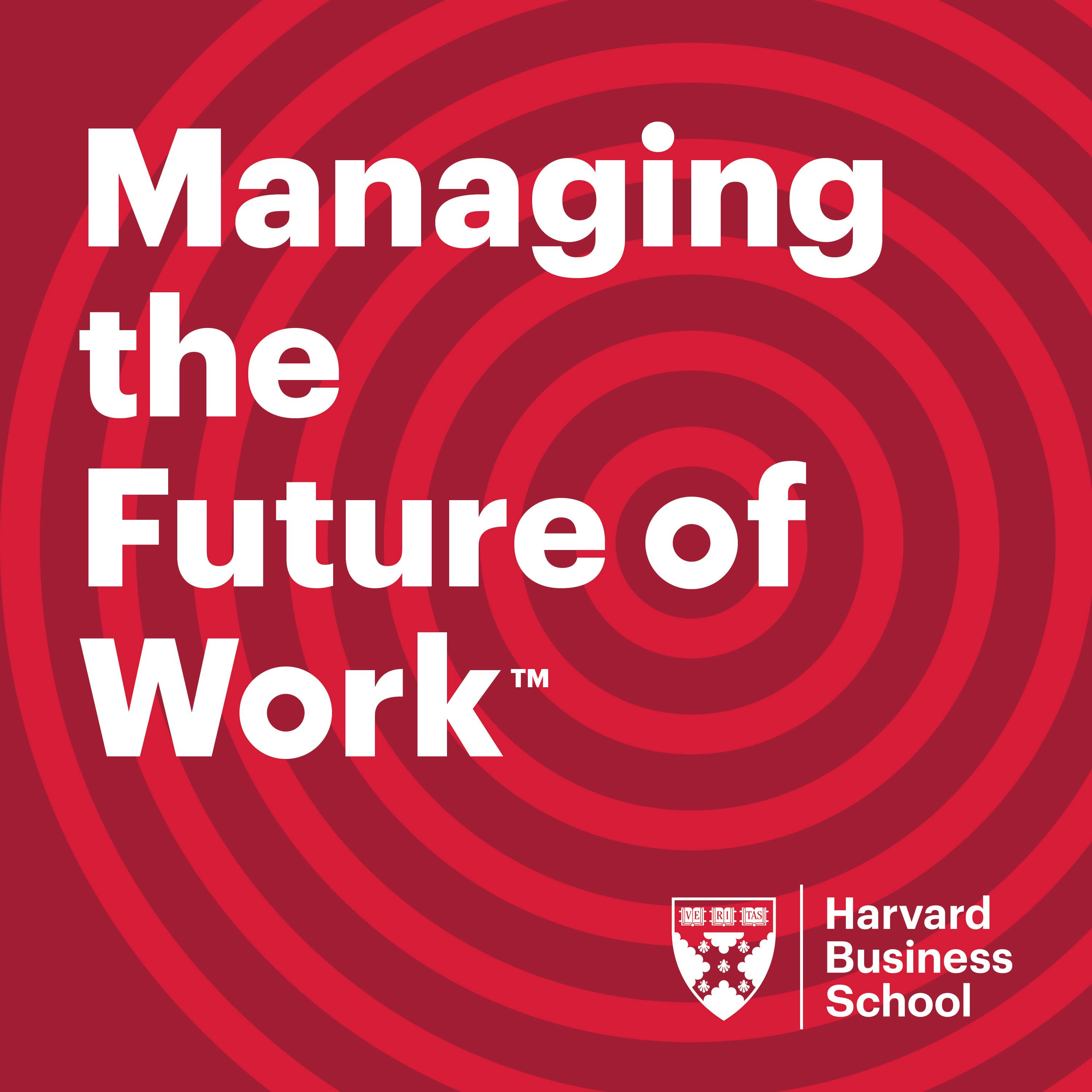

HBS Managing the Future of Work
Harvard Business School
Artificial intelligence. Robotics. The Gig Economy. Globalization. The world is changing at a dizzying pace in ways that will have a profound effect on the economy, jobs and the flow of talent. How will firms cope with the changes ahead and what steps do they need to take today? Each episode features faculty from the world’s leading business school interviewing CEOs, technologists and experts on the bleeding edge discussing how to survive and thrive by managing the future of work.
Episodes
Mentioned books

Jul 14, 2020 • 34min
Special Episode: Tsedal Neeley and Merck CEO Ken Frazier on vaccines, racism, and leadership
Merck Chairman and CEO, Ken Frazier—one of only four Black CEOs in the Fortune 500—joins HBS Professor Tsedal Neeley. Topics include the necessity of putting science ahead of politics in the search for a cure for Covid-19 and steps corporate leaders need to take if they are to counter structural racism. He advises Black professionals on the importance of mentors and acquiring the “psychological armor to defend ourselves against the racism that’s all around us.” He also shares his personal story, including “hav[ing] only one generation between me and slavery.”

Jul 8, 2020 • 25min
Beyond family leave: How help with caregiving benefits workers and employers
The pandemic underscores US workers’ need for help with caregiving obligations. HBS graduate Lindsay Jurist-Rosner founded B2B benefits company Wellthy in 2014 after realizing that her experience juggling work and the complex care needs of her mother was shared in one form or another by a large segment of the US workforce. She talks about the scope of the challenge, how employers are starting to address it, and what the payback looks like.

Jul 1, 2020 • 35min
Covid-19 Dispatch: Tsedal Neeley
The wholesale shift to remote work in response to Covid-19 is a radical change and most organizations are scrambling to adapt to the complex realities. Harvard Business School professor Tsedal Neeley has spent decades studying distributed organizations. Author of the forthcoming book Remote Work Revolution, she explains that getting it right depends on clear communication, routine, work-life boundaries, common purpose, and inclusion. She also discusses the pandemic’s disproportionate toll on African Americans and other minorities, and the systemic change needed to bring more diversity to businesses, particularly the upper echelons of professional organizations.

Jun 24, 2020 • 33min
Covid-19 Dispatch: Noah Smith
In a wide-ranging conversation, Bloomberg columnist Noah Smith candidly discusses how Covid-19 has exposed many of America’s systemic weaknesses, including the underfunding of social programs and infrastructure due to racism, bailouts for “zombie” companies, generational inequality, and the challenge of distributing wealth.

Jun 19, 2020 • 33min
Dexai: Machine learning in the kitchen
Advances in robotics have opened the way for the ultimate in smart kitchen appliances. Draper Labs spinoff, Dexai, makes the AI brains that coordinate the actions of Alfred, a robotic arm versatile enough follow recipes and handle orders in commercial kitchens. Cofounders David Johnson and HBS graduate Anthony Tayoun discuss the future of this culinary cobot.

Jun 15, 2020 • 30min
Covid-19 Dispatch: Sal Khan
Khan Academy’s polyglot and free online courses seem tailor-made for a pandemic-struck globe. Not surprisingly, the platform has seen massive increases in signups and use. The education nonprofit, founded in 2008 by HBS graduate Sal Khan, now serves over 100 million students in 190 countries. As schools contemplate reopening, it is developing tools for getting students ready for the next grade and providing a mix of in-class and online instruction. To handle the surge in demand, the donor-funded operation will need a corresponding boost in investment in search of social return.

Jun 11, 2020 • 32min
Covid-19 Dispatch: Stephen Kramer
Will Covid-19 overwhelm the care industry and rob workers of an essential means of maintaining work-life balance, if not simply working? With the haphazard reopening of the economy and civic life, the demand for care center spaces and in-home services is expected to swamp the diminishing supply. Stephen Kramer, CEO of Bright Horizons and a graduate of HBS, has been at the center of the care crisis in the US and internationally. He discusses the state of care—as a universal need and as an industry.

Jun 9, 2020 • 26min
Covid -19 Dispatch: Dan Springer
As Covid-19 has made remote work the norm, DocuSign and other e-signature companies have provided the digital architecture within which parties can seal agreements and process documents. This has allowed business transactions and official business to proceed while much of the economy has ground to a halt. DocuSign has seen a surge in business in healthcare, government, emergency services, small business lending, education, legal, and other sectors. CEO and HBS alumnus Dan Springer talks about the digital infrastructure for striking and managing agreements and how DocuSign has weathered the pandemic. The experience has led the company to help its employees work better from home, including subsidizing remote work setups.

Jun 5, 2020 • 34min
How the next recovery can revive upward mobility
Will Covid-19 derail ongoing efforts to provide skills training and meaningful career opportunities for the low-income workers who are bearing the brunt of the crisis? Brookings’ Marcela Escobari explains the realities of low-wage employment and what businesses and local leaders can do to foster economic development that creates the steppingstone jobs that lead to better jobs.

Jun 3, 2020 • 33min
Covid-19 Dispatch: John Barry
What lessons does the 1918 influenza pandemic offer as we respond to the coronavirus crisis? Historian and public health expert John Barry joins Joe Fuller to talk about the parallels and differences between these global virus outbreaks. Barry is the author of the best-seller The Great Influenza: The Story of the Deadliest Pandemic in History. Then as now, he asserts, transparency from authorities and compliance with science-based public health directives like social distancing, along with extensive testing and contact tracing, are imperative.


